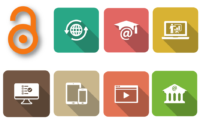
Learning for a Different Future: Learning in an Age of Disruption
A number of change forces are reshaping communities, organizations, work and identity. These global forces require educational organizations to rethink their purpose, ways of working and their collaborations to better serve the needs of society. They are leading to new kinds of educational organizations, new forms of learning and new kinds of credentials as well […]
















